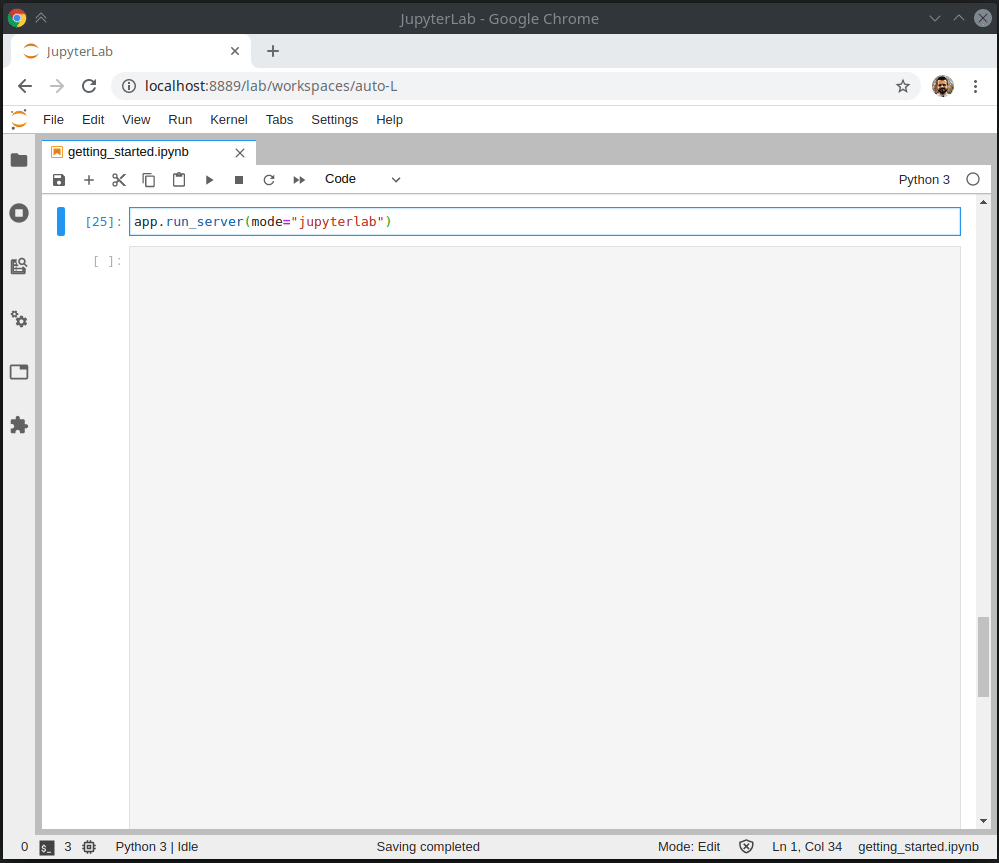jupyterlab-dash
v0.4.0
Published
A JupyterLab extensions for rendering Plotly Dash apps
Downloads
2,219
Maintainers
Readme
Jupyter Dash
This library makes it easy to develop Plotly Dash apps interactively from within Jupyter environments (e.g. classic Notebook, JupyterLab, Visual Studio Code notebooks, nteract, PyCharm notebooks, etc.).

See the notebooks/getting_started.ipynb for more information and example usage.
Installation
You can install the JupyterDash Python package using pip...
$ pip install jupyter-dashor conda
$ conda install -c conda-forge -c plotly jupyter-dashJupyterLab support
When used in JupyterLab, JupyterDash depends on the jupyterlab-dash JupyterLab extension, which requires JupyterLab version 2.0 or above.
This extension is included with the Python package, but in order to activate it JupyterLab must be rebuilt. JupyterLab should automatically produce a popup dialog asking for permission to rebuild, but the rebuild can also be performed manually from the command line using:
$ jupyter lab buildTo check that the extension is installed properly, call jupyter labextension list.
Colab support
As of version 0.3.0, JupyterDash works in Colab with no additional configuration. Just install jupyter-dash using pip in a Colab notebook cell
!pip install jupyter-dashFeatures
To learn more about the features of JupyterDash, check out the announcement post.
Development
To develop JupyterDash, first create and activate a virtual environment using virtualenv or conda.
Then clone the repository and change directory to the repository root:
$ git clone https://github.com/plotly/jupyter-dash.git
$ cd jupyter-dashThen install the dependencies:
$ pip install -r requirements.txt -r requirements-dev.txt Then install the Python package in editable mode. Note: this will require nodejs to be installed.
$ pip install -e .Then install the classic notebook extension in development mode:
$ jupyter nbextension install --sys-prefix --symlink --py jupyter_dash
$ jupyter nbextension enable --py jupyter_dashThen install the JupyterLab extension in development mode:
$ jupyter labextension link extensions/jupyterlabFor release, build the JupyterLab extension to bundle with the Python package:
$ python setup.py build_js